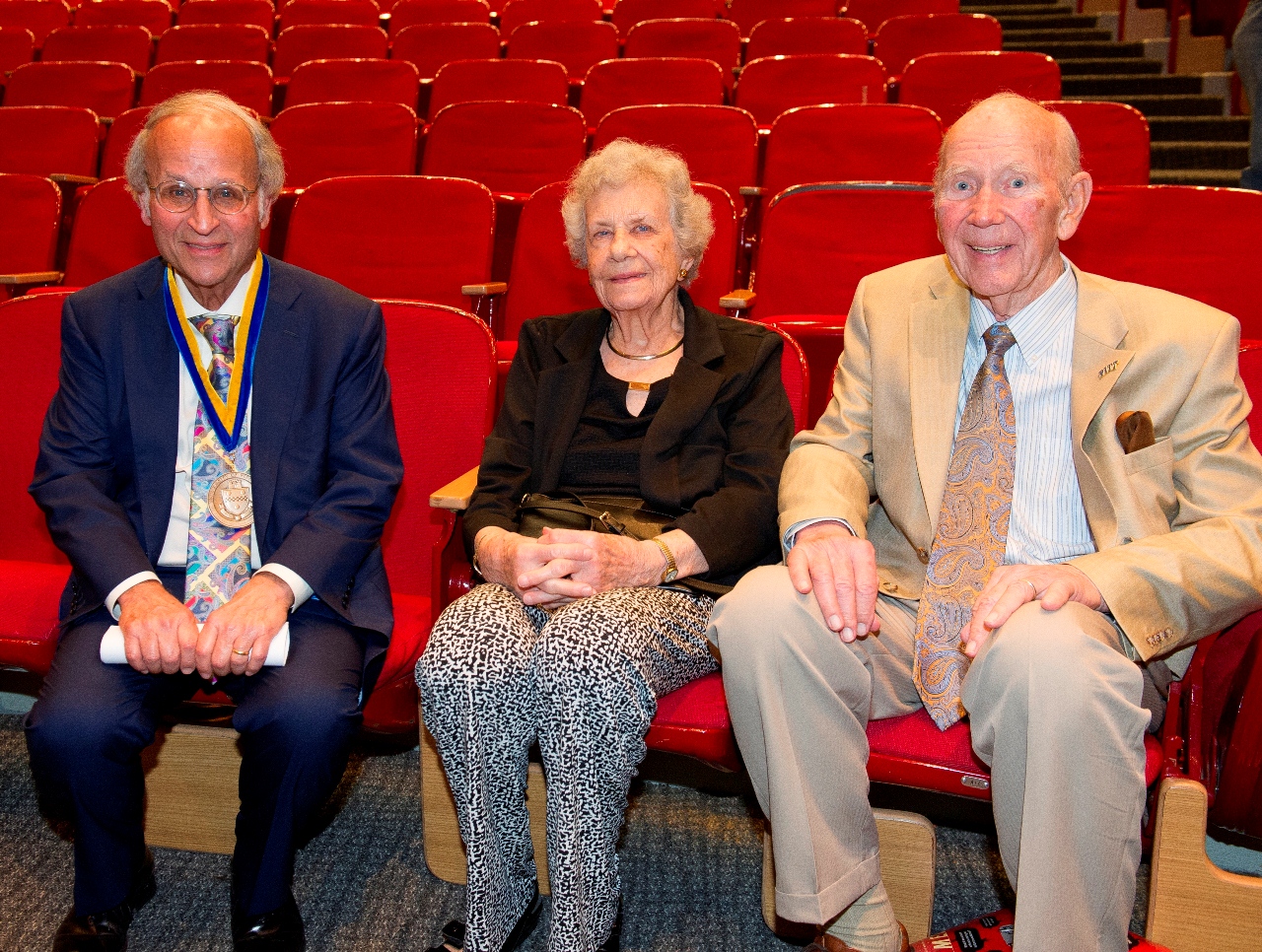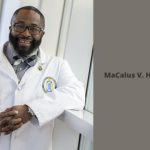At what Chancellor Mark Nordenberg called “a very, very special occasion,” Dr. Art Levine yesterday received a medal commemorating his appointment as the John and Gertrude Petersen Dean of the School of Medicine, marking the first time in the medical school’s 128-year history that an endowed chair has been established for its dean.
An endowed chair is “one of the highest honors that a university can bestow on a member of its faculty” representing recognition of the recipient’s national and international prominence in his or her field and of past contributions and future efforts that benefit the academic community, said Pitt Provost Patricia Beeson as she welcomed more than 500 people, including benefactors John and Gertrude Petersen, to Scaife Hall to hear Dr. Levine deliver a talk about his evolution from a student of comparative literature into the leader of a world-class medical school.
Noting that his might be the only Jewish mother not to want her son to go to medical school (she’d hoped he’d be a poet) and that he’d missed summer while a resident at the University of Minnesota Hospitals (he was on call that day), Dr. Levine described many significant steps on his journey as a physician and scientist, including his clinical training in pediatrics, his research efforts at the National Institutes of Health, and his fascination with molecular genetics and DNA repair, which led to authorship of landmark papers in the field.
 During his 15-year tenure as dean of the medical school and senior vice chancellor for the health sciences, Dr. Levine has led the establishment of 10 new medical school departments, including the nation’s first Department of Critical Care Medicine, and seven new institutions or centers; built relationships with Tsinghua University in Beijing (the “MIT of China”) to bring Chinese medical and graduate students to Pitt for biomedical research training and with the Republic of Kazakhstan’s Nazarbayev University to develop its U.S.-style medical school; and recruited renowned scientists to foster the university’s growth into a biomedical research powerhouse.
During his 15-year tenure as dean of the medical school and senior vice chancellor for the health sciences, Dr. Levine has led the establishment of 10 new medical school departments, including the nation’s first Department of Critical Care Medicine, and seven new institutions or centers; built relationships with Tsinghua University in Beijing (the “MIT of China”) to bring Chinese medical and graduate students to Pitt for biomedical research training and with the Republic of Kazakhstan’s Nazarbayev University to develop its U.S.-style medical school; and recruited renowned scientists to foster the university’s growth into a biomedical research powerhouse.
You can listen to Dr. Levine’s talk here.









